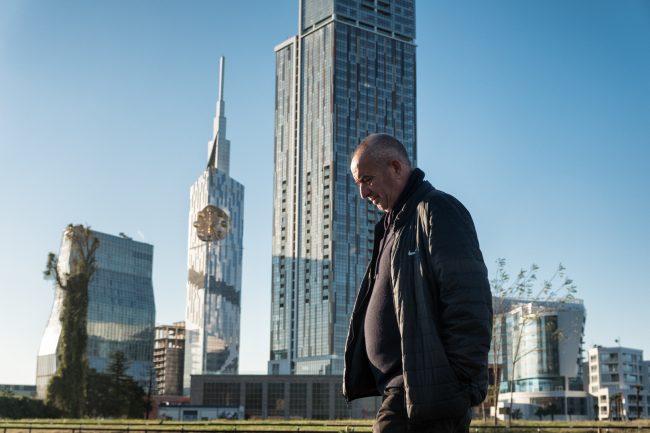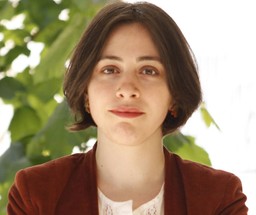

 ‘The hotel is built in avant-garde-minimalist style. It’s energy-efficient and has a minimal impact on the environment’, the city guide states of the Leo Grand, the hotel struck by a deadly fire on 24 November. Given that 12 people were killed and 21 injured in the fire, ‘minimalist designs’ could perhaps also refer to the minimally regulated building standards which are causing the shoddy development of our cities.
‘The hotel is built in avant-garde-minimalist style. It’s energy-efficient and has a minimal impact on the environment’, the city guide states of the Leo Grand, the hotel struck by a deadly fire on 24 November. Given that 12 people were killed and 21 injured in the fire, ‘minimalist designs’ could perhaps also refer to the minimally regulated building standards which are causing the shoddy development of our cities.
This was not the first time faith in the rapid development capacities of such investment projects has faltered. Expensive construction projects have long been a cause of contention for the local population of Batumi.
During construction of the Hotel Sheraton in 2010, a chunk of green land on the city’s boulevard was appropriated for the hotel pool; in 2014, the Hilton Hotel attempted to privatise an area that activists were protecting as part of the city’s history — the former Café Octopus; and in 2015, a new city development plan sparked mass protests in the city demanding that plans to commercialise the green boulevard on the city’s coast be altered.
The video from Adjara’s Ministry of Finance and Economy that triggered mass mobilisation of activists. It shows planned developments along Batumi’s boulevard.
Long before the fire at the Leo Grand, gentrification and substandard construction standards had already brought together architects, journalists, and lawyers into a civic organisation called Society Batom, to defend public interests in the urbanisation of Batumi.
Not a backstreet bazaar
When the Leo Grand tragedy happened, everybody realised this was not the same as when overcrowded, illegal neighbourhoods catch the fire — such as in old bazaars, poor communal residences, and in the underprivileged and peripheral areas. This was not an unauthorised construction failing, it was the work of a prestigious, expensive, and supposedly accountable business venture that resulted in 12 deaths.
After the 2003 Rose Revolution swept the former ruling United National Movement (UNM) party into power, development in Batumi has been highly deregulated. Legislation and public policy concerning sanitation, safety, and ecology have been neglected in favour of spurring growth through rapid construction projects. All three stages of regulation — during, planning, construction, and exploitation — have been dismantled or weakened. This means that expert assessment of planned safety measures, construction, and of the buildings use thereafter, are no longer overseen by the state.
‘The problem became systemic and the decision was political’, architect Gia Ramishvili, a member of Society Batom, said during a public meeting at the Eastern European Centre for Multiparty Democracy (EECMD) in Batumi in December. ‘This was done to attract investors and create a comfortable environment for them’.
Irakli Akhaladze, the head of the Architecture and Urban Planning Service of Batumi City Hall, admitted as much during the meeting. According to him, since 2009, simplified procedures have allowed investors to ignore technical requirements.
‘Presenting construction plans or geological assessments became unnecessary. This has unleashed the possibility for developers to acquire permits and construct buildings with ease. There were occasions where buildings were built without even water or plumbing systems’, Akhaladze said.
According to him, even constructions deemed ‘high risk’ were not asked to present plans, but only an assessment of their plans.
Self-regulation
As such, Batumi has relied on self-regulation, with big international brands expected to enforce their own standards. These standards can all be seen in the form of translated documents within the registration files of each building, but the government does not allocate any resources to assess or oversee these.
‘We were in limbo for quite some time in Batumi’, says Ramishvili.
According to Akhaladze, the 6,000 square metre, $40 million Leo Grand was given permission to go ahead in 2012 within the legal environment of the time, which meant fire-safety plans did not need to be presented to the authorities, or even an expert assessment of them. By the time the building was completed in 2015, it went into use without any kind of safety assessment from the state.
Georgian policy makers finally seem to acknowledge that some construction standards are necessary, introducing the International Building Code (IBC) to professionals in Batumi in January 2016, which entered into force on 1 January 2017.
But locals say the code was met with resistance from developers, and was amended in several ways before finally being adopted to allow the developers to build more with less. For example, according to Ramishvili, while the IBC code requires buildings higher than 3 stories have more than 2 entrances, this was amended to 8 stories for Georgia.
Toothless regulations
Even now that some standards are in place, some experts question if there is adequate oversight from the government to ensure they are followed.
Ramishvili argues that the 11-month struggle to introduce IBC standards has so far proved fairly pointless, as the IBC, as a global union of professionals, can’t guarantee that businesses adhere to their standards, or hold the state accountable for not enforcing them.
While he says the IBC could be a useful knowledge bank for the government, state institutions are politically uninterested with the process, and do not have the capacity to enforce IBC standards even if they wanted to.
‘Political will is such that state bodies do not have the capacity to act. The developers, the investors, have unlimited power. A small section of society that call themselves developers, without any respect to this term, have everybody’s consent’, says Ramishvili.
But calls for more robust regulation of development projects has not been universal in the wake of the fire. Roman Gotsiridze, a member of the former ruling party the UNM, told Ajara TV that what Georgia needed was a strong private insurance system, arguing that insurance companies would be more effective in enforcing building regulations than the state.
Meanwhile, a group representing hotel owners in the city said what was needed was better training for staff on safety measures.
The Facebook description of a solidarity event organised by activists in Batumi on 10 December, international Human Rights Day, said that ‘responsibility [for the tragedy] is shared among each citizen of Georgia’, and ‘the state starts from us’.
Society Batom disagrees. They say the tragedy is not the responsibility of everyone, and only the small number of people holding power and the state authorities should feel responsible.
They say campaigning for an increased sense of public accountability, or strengthening human rights consciousness among residents of Batumi, are not the right tools against unchecked commercialisation, weak, unenforced regulations, or the power imbalance between the state and private companies.
Batom likewise dismisses as ineffective calls for a market-based solution, i.e. insurance companies, or simply retraining staff.
There are tens of buildings built in the ways that make them and the surrounding environment inaccessible to firefighters, one of the founders of Batom, Shota Gujabidze, told OC Media. Gujabidze wants the government to totally refocus its attention from individual malpractices, to recognise the scale of damages sub-standard development is having on the humans beings of Batumi.
In today’s still rapidly changing Batumi, Society Batom have vowed to continue to fight what they say is the kitsch and unprofessionalism that run below what the government and developers call ‘environmental friendliness’ and ‘citiscape development’.
This article was prepared with support from the Friedrich-Ebert-Stiftung (FES) Regional Office in the South Caucasus. All opinions expressed are the author’s alone, and may not necessarily reflect the views of FES or OC Media.









